Find out more about Redmap project and how Australia's fishers, divers and other ocean users' information submitted to Redmap has been instrumental in documenting species on the move around Australia's coasts over the past decade. This article, by CMS Director Gretta Pecl, Dr Barrett Wolfe and other collaborators, was published in The Conversation.
* Cover photo: a hairtail blenny submitted by Redmapper Jacob Bradbury. This species is one of the 77(!) moving south that we report on in the article.
The SoE is an independent and evidence-based review, delivered every 5 years as a requirement of the EPBC Act, providing a comprehensive and authoritative assessment of the state of Australia’s environment. It aims to help shape policy and action, influence behaviour and assists in assessing our interventions as stewards of the Australian environment.
The Marine chapter of the state of the environment (SoE) report provides an overarching synthesis of the state and trend of Australia’s marine environment, key pressures on the environment, and the management structures that are in place to support the sustainability of the marine environment and marine industries. For the first time, it also aims to integrate Indigenous knowledge and perspectives. It was led by CSIRO-based CMS researchers (acting as independent experts on behalf of the Department of Climate Change, Energy, the Environment and Water) and written in collaboration with more than 200 marine experts from around Australia, including Traditional Owners.
Key findings from the chapter are that:
Four of the lead authors for the chapter are CMS members (Rowan Trebilco, Mibu Fischer, Karen Evans and Alistair Hobday), and an additional 12 CMS members authored assessments and case studies (i.e. were “contributing authors”): Scott Condie, Anna Farmery, Beth Fulton, Denise Hardesty, Marcus Haward, Mark Hemer, Cayne Layton, Barb Nowak, Em Ogier, Gretta Pecl, David Smith and Chris Wilcox. Ingrid van Putten, Rich Little, Mark Hemer and Jo Vince also contributed as peer reviewers of assessments/case studies.
Find report here
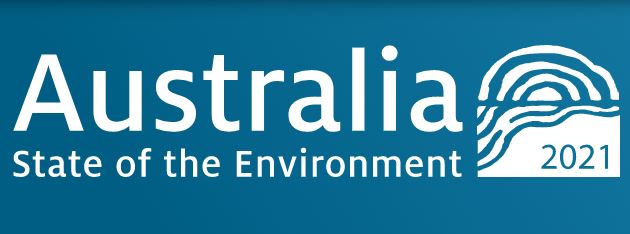
This webinar explored climate change adaptation from the cutting-edge science to on-the-ground action. Looking at what is happening locally to adapt to the impacts of climate change and Tasmania’s role in broader programs like the National Environmental Science Program.
This forum was hosted by the patron of National Science Week Tasmania and CMS member, Dr Jess Melbourne-Thomas.
Panel:
• Associate Professor Sarah Boulter, Associate Professor in Climate Change Adaptation, University of Tasmania and Climate Adaptation Mission Lead, National Environmental Science Program
• Katrina Graham, Senior Climate Change Officer, Hobart City Council
PhD student Dimuthu Jayakody was the winner of the student award for the best speed talk presentation at the Hawaii Conservation Conference. Di presented the talk "An approach to assessing place attachment toward improving place-based biological conservation and environmental planning efforts". Congratulations Di!!
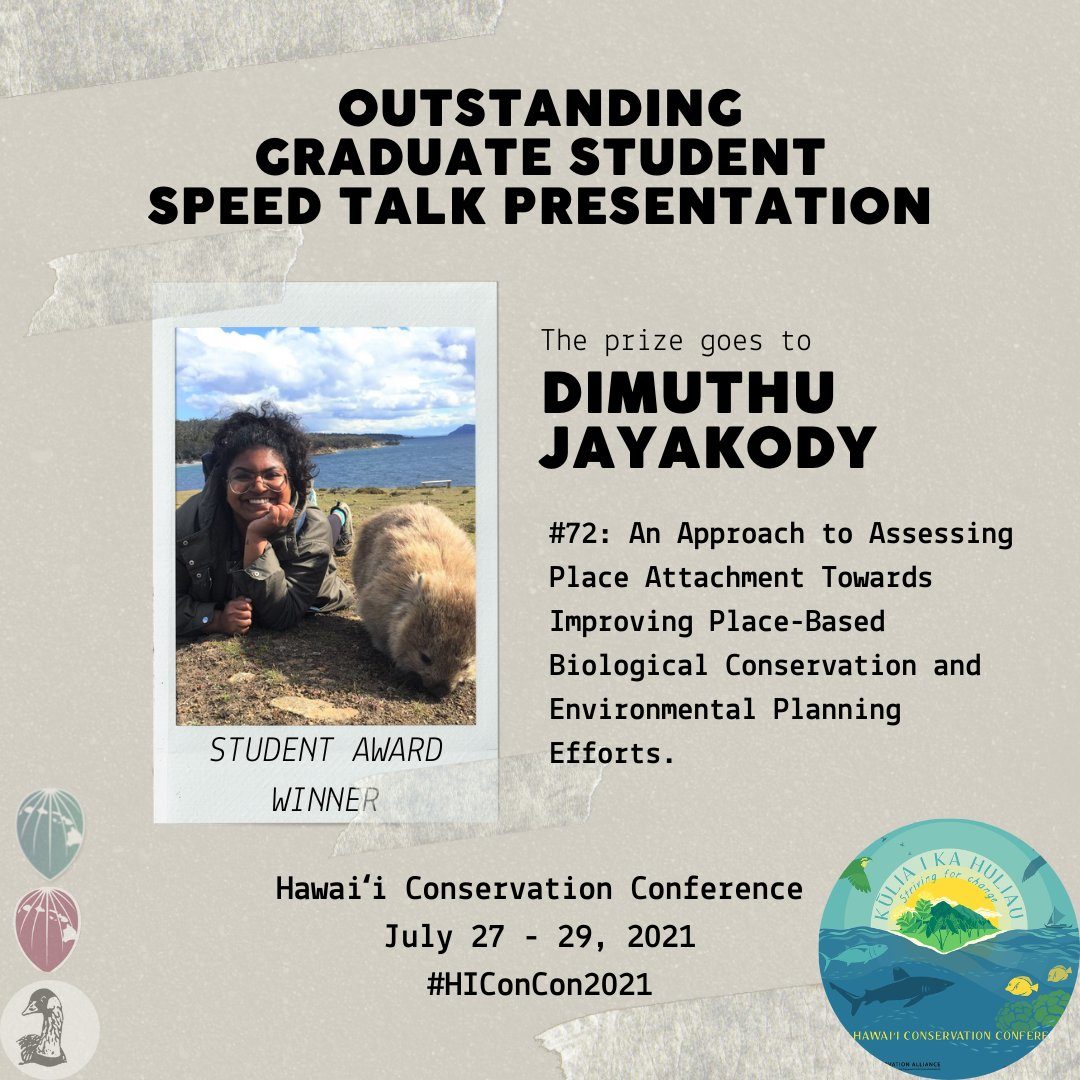
Congratulation to Corrine who received the best poster award at the AMSA Conference 2022 for her poster "Social influence modelling - Reducing community conflict in aquaculture".
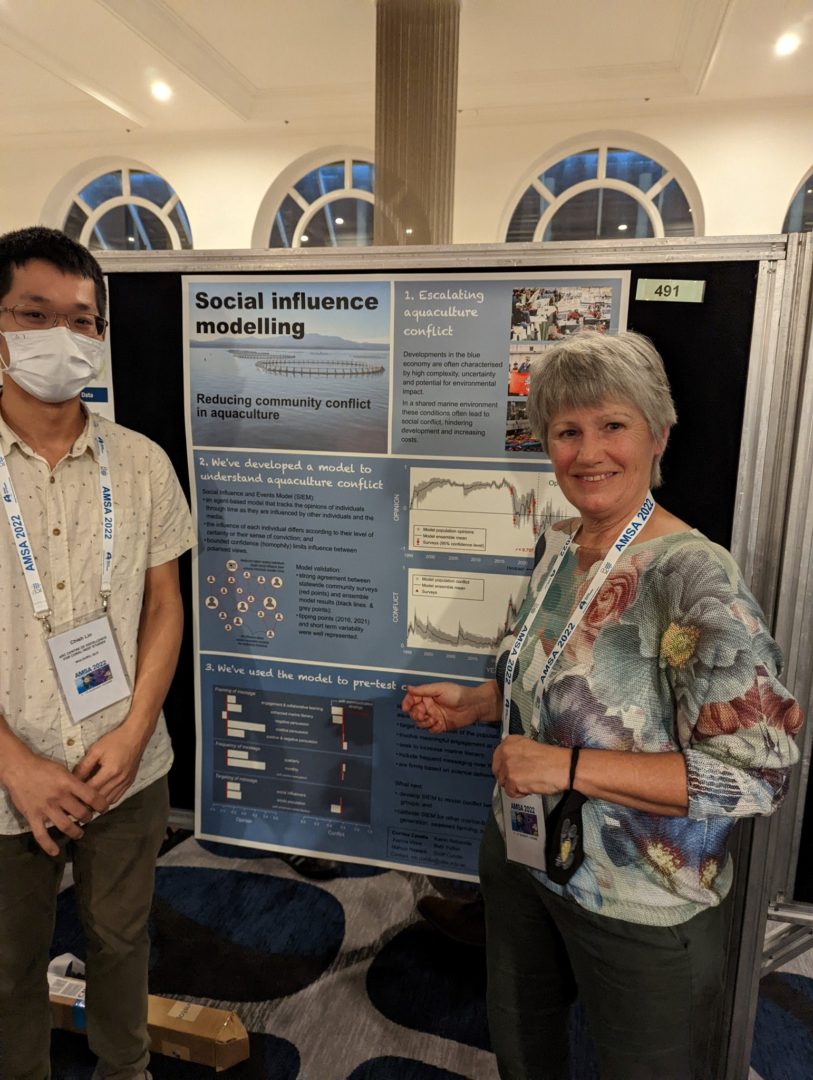
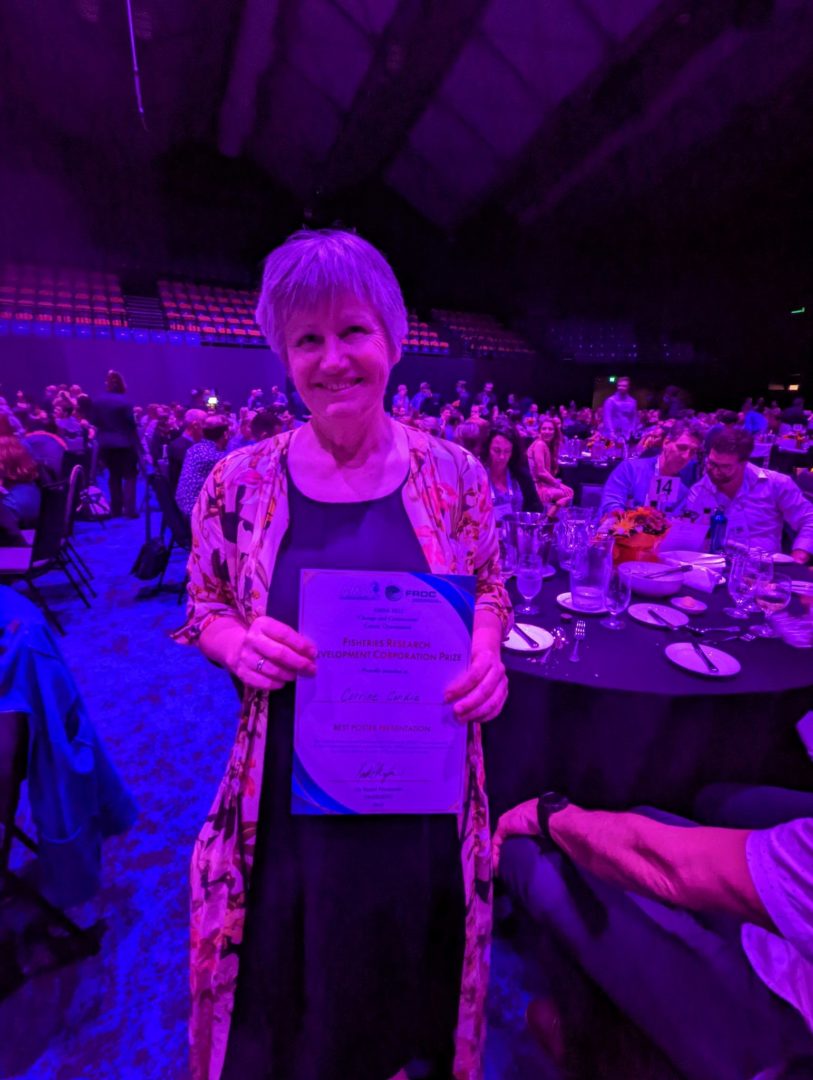
Congratulation to Graham Wood for being a finalist in the ACTS Champions awards for his work in "sustainability literacy"!
Curious Climate program: student and community-led conversations with scientists on climate change, led by Gretta Pecl, Chloe Lucas and Gabi Mocatta and involving many CMS members, is a finalist in the 2022 Green Gown Awards Australasia!!
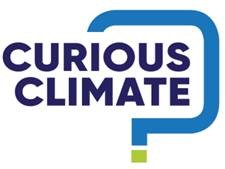
We are so excited that Dr Kirsty Nash has been given the 2022 Emerging Leader in Marine Science Award by AMSA in recognition to Kirsty's impactful and interdisciplinary work across coral reef ecosystems, health, science communication, and gender equity in academia. Huge congratulations Kirsty!!
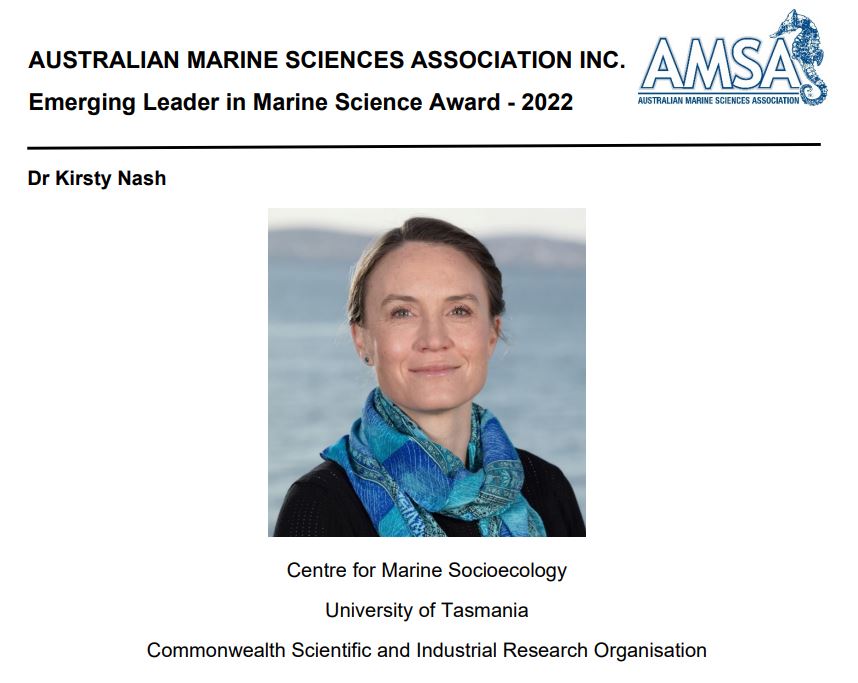
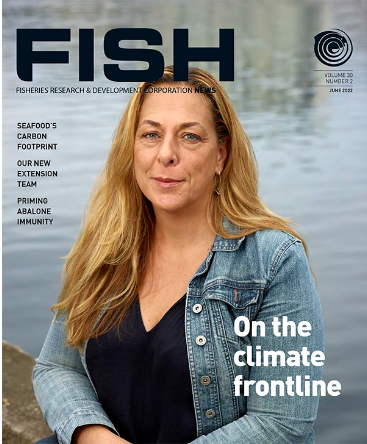
CMS Director Prof Gretta Pecl was featured in FISH Magazine. Read article here
This is a documentary showcasing not only the outstanding wildlife and nature of the Southern Ocean, but also the vital role scientists play in helping us both understand and conserve the many species and marine and coastal ecosystems showcased.
CMS Director Prof Gretta Pecl and other IMAS researchers contributed to the broadcast.
If you would like to watch it, it is available on iView https://iview.abc.net.au/show/southern-ocean-live -